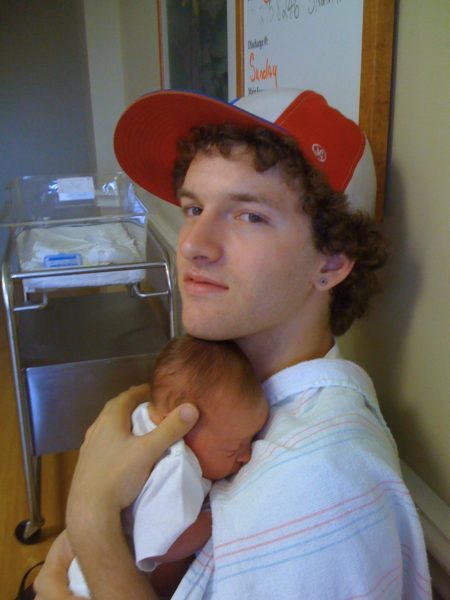Since we have new members all the time, I like to suggest that everyone join the private Channeling Erik Facebook Group. Just ask to be invited and enjoy sharing in safe and loving place where no topic is taboo and subject to ridicule or scorn. It’s a tight-knit group, so full of love and friendship that some have traveled across the country to meet each other. The link is HERE. Also, be sure to friend and like ME , the book’s PAGE and the Channeling Erik PAGE.
Today, I woke up to an aroma. Rotten flesh. At first I thought, “Dammit, Erik. You know that’s my least favorite smell in the whole wide world!” (I never in a million years would have made it as a forensic pathologist. Yuck.) But then I remembered our new roof. Any little critters who were able to enter and exit from the many holes that had peppered it were doomed to death now that it’s sealed air and animal tight. So some poor little squirrel, rat, possum, or raccoon died a slow and agonizing death. Our recent mid-90s weather with a heat index in the low 100s didn’t help. Maybe they had a nest full of tiny babies. It made me feel sad to think of how it suffered,and I’m sure it wasn’t alone.
On a lighter note, enjoy this two-part series (Can you call a series if there are only two?) about losing control. Today’s is pretty long, the second one about losing control of a situation is short. Sorry.
Throughout my life, it seems like I’ve been spinning the roulette wheel not knowing where it will stop. As a child, my life was one of complete disempowerment for various reasons I can’t share. However, time heals wounds, and I came to believe that I did have some control over how my life would play out. Most days I woke up expecting a beautiful day to unfold. I had that expectation on October 9, 2009, but at around 1:00 PM, I would be proven wrong because I didn’t have any control over how that day would end. I couldn’t control whether Erik would pull that trigger. A few millimeters of travel. That’s all it took—how I despise that trigger—and I couldn’t control the downward spiral of grief that followed. Hope becoming an elusive commodity, I stopped believing that, “Everything will be all right.” Here, Erik explains how the desire to control only creates misery and how to relinquish that control to reclaim your hope.
Me: A lot of people feel like they’re spinning out of control when it comes to other people, themselves or situations. How does this relate to uncertainty?
Erik: Okay, let’s use driving a car as an example. You’re going along just fine when all of a sudden another person, a situation or your own emotions take the steering wheel and starts careening in all directions, and you don’t know where you’re going next. My death took the wheel, your father took the wheel, your grief took the wheel. It’s like all of a sudden you’re going rogue. That’s where the uncertainty lies.
I belly laugh when Erik starts singing, “Jesus, Take the Wheel.”
Erik: Consider the phrase, “loss of control. “If you feel like you have to control everything, then you’re coming from a place of scarcity because scarcity wants to control what it wants so that it will never go away. As humans, we have to learn not to control things. Guide instead. We’ve controlled throughout our evolution up until now, but we’re going to start moving away from that. Look at all the things we’ve tried to control and what it’s done. It’s just fucked everything up. One of the big example of in the “War on Drugs.” Look at all the misery and suffering that came about because we’ve tried controlled what people do.
Me: What we resist persists.
Erik: It’s better to let people guide themselves to do what’s innately right for them.
Me: Do you relinquish control over a child that’s heavy into drugs?
Erik: You have to. They have to get to get to a point where they’re so stripped of ego that they have to redefine themselves.
Me: What happens if we try to control them?
Erik: It wouldn’t help them, Mom. They wouldn’t learn the lesson. Kids on drugs don’t respond to house arrest. They’re going to slip out of the window during the night anyway. They don’t respond to you searching their rooms and confiscating things. They’ll just learn to hide it better. Being those arms that tightly close around them to try to keep them controlled is only going to enable them. Think about a small child who runs up to you and sits in your lap. The minute you wrap your arms around them, what are they going to do?
Me: Squirm to get down.
Erik: Right. Suffering is not a bad thing. It’s hard to watch, especially in your own child, and our culture makes it hard to be a spectator to suffering. It’s like, “Oh, how terrible. How can you do that? How can you let that happen?” But only open arms can save that lost soul. Give him something to run to for that hug. I’m using metaphors here.
Me: Oh, I know.
Erik: All you can do is be available to them to listen, to offer resources that might help them, to let them know that you love them.
Me: In the case of loss of control over yourself or a situation, you can still use guidance, right?
Erik: That’s right. The thing you have to recognize is that there’s no such thing as control. It’s all about guiding. Here’s the difference. Control is like a dam. It stops everything up. It tries to stop the flow of the river because you don’t want it to go there. Guiding is not that way. It’s about letting the river go where it wants to go, seeing where it goes, and then taking action from the bank. It’s about following the river instead of telling it, “I want you to go left,” or “I want you to go right.” Let the river go where it wants to go, and then adapt to that.
Me: So as an example, as a young mother I used to control my kids more because I was uncertain whether, if left to their own devices, they’d remain safe and become the happy, productive and fulfilled adults I wanted them to be. Eventually I learned that that doesn’t work, so I started just facilitating them, encouraging them and using logical consequences as the main form of discipline.
Erik: Yes. That’s guiding from the riverbank. You don’t want to sit back and say, “Well, if you fuck up, you fuck up.” It’s about giving them information and letting them know what the potential consequences will be. Those are important tools in guiding people. Sometimes this can play into people’s fear, but fear is often a necessary tool. Ultimately, everything is a tool. Think about how some schools have these mock car accident tragedies to show how dangerous texting while driving is.
Me: Yeah, they do that at our high school. Lots of bandages, crumpled cars, ambulances, hearses, blood and people playing dead. It’s very realistic and graphic.
Erik: Yes, that’s giving them information, even though they might feel fear from it, but you can’t just show them something fearful and leave them there to stay in that fear. Otherwise they’ll think, “Ooo, I gotta stay away from this.” You give them the information, and then you talk them it. You counsel them.
Me: So loss of control over children is pretty straightforward, but what about family members, friends, coworkers, etc. when they run ram shod over you?
Erik: They don’t respect you.
Me: Exactly. So how would you guide them from the riverbank?
Erik: Take a bully as an example. First, you have to accept that that is how they are in that moment and not resist it. Some people tense up and get ready to fight back. Other people tend to flee. They just give up control. You have to recognize how you are emotionally and get your shit straight; get yourself centered. Then you have to figure out why the person is like that. Not everyone can do that, and, if you’re one of those people, you have to start out with the acceptance of it and go from there. Sometimes if you can’t see a person why a person is the way they are, they’re probably just a dick who’s been trained to be that way from past experiences. Becoming aware of that fact makes it easier to accept them as they are. Then, don’t fight with them. Think of a tennis game. If someone brings you hostility and you give hostility in return, you’re just going to keep batting the ball back and forth. You’re never going to get anywhere. Just let them hit the ball, and don’t hit it back. Step back. That shit can be hard to do.
Me: I guess you can be emotionally honest with them and set boundaries.
Erik: Yeah, but with some people where you can do that until you’re blue in the face and nothing will ever happen. After you accept, you have to make a choice. Do you want that person in your life? Sometimes that can even be a family member, but if trying to figure out how to deal with that person becomes too much for you, you need to step away.
Me: Or you could change the relationship to be shallower. I’ve had relationships with family members where I could only talk about things like the weather and, ‘Hey, how ‘bout them Yankees?’
Erik: You can, but that’s really avoidance. If that’s the case, you need to ask yourself, “Am I avoiding things out of a fear of conflict?”
Me: Yeah, and I guess that’s not being emotionally honest with yourself.
Erik: That’s true. It all depends on your intent. Why are you in that place of avoidance?
Me: Okay. What about when you feel like you’re spinning out of control? You’ve lost control over your emotions or your actions. One example might be that you’re an alcoholic, and you can’t stop drinking.
Erik: Well, eventually, you recognize that the addiction is driving your life, so what some alcoholics do is completely cut alcohol out of their lives. I know this sounds contradictory, but then all they do is switch the control from being addiction to trying to control the addiction. They’re setting themselves up for a lifetime of struggle, constantly fighting their addiction they’re trying to control. Again, if you’ve been addicted for a long time and those blankets are piling up, sometimes it’s not wise to quit cold turkey. Sometimes you have to taper off. In some cases of addiction, you can’t just taper off like with heroin or speed.
Me: So some examples of working from the riverbank might be to surround yourself with emotional support and resources like AA. I guess that’s true with all sorts of instances where you feel like you’re out of control.
Erik: Yeah. You have to have someone there who’s really strong who isn’t going to judge you for your actions. Whether it’s a friend, a family member, a therapist or whatever, they can help guide you through it. They need to help you become aware of what’s going on and then help you find the motivation to do something about what you’re aware of. These resources can help you see that’s really in yourself with is empowerment. That’s our natural state without the blankets. Whoever’s going to help you needs to be empowered for you.



